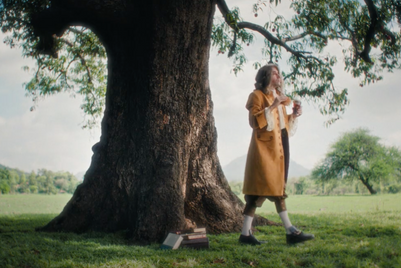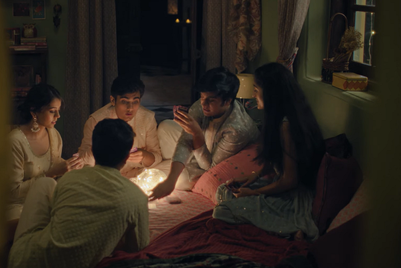
The future requires brands to give up control to consumers, says McDonald’s chief brand and strategy officer Pierre Woreczek.
This is a challenge for all brands, but a particular test for a brand as decentralised as McDonald’s with its more autonomous mix of country-based management and local franchise owners who also have to be brought on board.
“I think you have to adapt your company, you have to open the company, you have to create a kind of democracy around a company that is good enough that people will [be prepared] to talk with you, to [have a] dialogue with you and to admire you. If they love you, if they admire you, you will be very happy. If you try to control it, I think you will have big issues,” he says.
Adapting such a decentralised company to the digital future is bound to take time but it is a journey the fast food brand is firmly embarked on. “We are a very decentralised company so you can’t have in one day everything everywhere, but today I feel the biggest markets are following,” he says.
Woreczek’s own digital journey is conducted primarily via the web and Skype. He’s not on Facebook, rarely responds to connection requests on LinkedIn and has yet to truly test Twitter.
Despite his iPhone and the interchangeable iPads he and his wife share, at the centre of his digital experience is his home computer, which he primarily uses to check out guitars and music online.
“It’s not the iPhone that provided me the most exciting digital experience, it’s really in my computer at home, so if tomorrow my computer at home is just broken it’s then the stress is coming. It’s like my drug,” he says.
Working for McDonald’s, a company that has few centralised functions—design is one of the few—will require strong local leadership if the brand is to create a relationship with consumers.
For Woreczek, the key to the process is the role of top management in championing and preaching the virtues of all things digital.
“There comes a time when they should be the one that pushes on otherwise it will not work. So I’m not asking them to be the expert. I’m just asking them to be one of the [evangelists], they have to preach for it,” he says. “They should be the engine of the change, so they have to encapsulate it into the strategy.”
Frédéric Colas: Was there a moment when you realized that digital was a revolution for marketing?
Pierre Woreczek: I remember [being] in France and I was trying to push for CRM programmes and I was saying we will need to understand customers much more and talking a little bit about fragmentation when very few people were talking about fragmentation.
But that was much too early and people did not understand the return on investment you can get out of it when you have a [mass-market] company like us.
For me, [the revelation was about the feeling] that we would have to understand and know people better.
FC: How have you convinced the franchises to join this journey?
PW: The franchisees—most of the time—are the most pushy people. They're very much after innovation, new things but they need to understand the return, they need to understand the benefit. I’m passionate about the governance model of McDonalds and the franchisees are one major dimension of the success of the brand. [The] only area where we need to convince them is the control dimension you talk about.
…It’s a step-by-step approach, so first you always find among the franchisees some people that are really passionate and they can help you because they know each other so well. They understand the problems [the outlets] are facing etcetera so you need to use those people to support you. This is the best way, they’re managed by example.
Would you say that digital has become central to your marketing or does it vary from country to country?
It is central. We will not be able to operate a store in the future without digital. Just take the ordering, the way you pay, the mobile way of doing things, I mean it’s impossible, so it’s central.
No doubt there are differences from one market to another but curiously digital is leveraging these differences. I think there are much more equal situations than you could have seen 10 years ago when you talk about much more classical marketing stuff.
I think the way people are embracing digital in Europe from the big market like France, UK or Germany to smaller market like Ukraine, I mean the way they embrace it are quite similar and I’ve seen amazing things done in Ukraine.
In small markets because you can do so much with less money with digital it’s leveraging things, so I think the gaps between the markets are much smaller relative to digital than many years ago when we were talking about more classical marketing.
How is digital changing your marketing organisation?
There are many questions about organisation, the first question is what should be global, what should be at the area level, at the work level and what should be at the country level. It’s not an easy question and I’ve been benchmarking a lot of the organisation and there’s not one [solution]. There are so many differences.
My conviction is that in each local marketing [team], digital should be now a natural element in the group. You can’t imagine having a marketing team without first the people being totally used to [digital]. Now having said that if we want to match the pace of change, you need to add one or two people that are amazingly talented, and that are able to organise and co-ordinate.
Where do developments such as Foursquare and geotargeting fit into the future for McDonald’s?
We’re an impulse business and, it varies from one market to another but the percentage of people who are making a decision nearly 10 minutes or 15 minutes before, it’s quite huge. So it will be critical to be able to propose offers or deals or solutions to customers, based on where they are, if they are ready to accept it.
In US, they are more advanced than we are in Europe. They’re using Foursquare a lot and but I believe we should develop partnerships due to our size that will really help us to manage this better.
What is the key challenge facing your role in the future?
The one word I love to use more and more is agility. I still believe in good methodology but way we were approaching the business was slow. It has accelerated and we have always said you have to be more flexible, adaptable.
I think tomorrow, it’s not even more about adaptability and flexibility it’s just about agility.
You have to be ready to change, obviously not the strategy but the way you apply your strategy. I think it’s interesting the difference between my kids and myself when they’re in front of a game. They understand immediately it starts to be intuitive. People in the future have to be much more intuitive in the way they feel they understand the business and be able to adapt it immediately and that is totally different.
How does that change the CMOs job?
I think the passion that makes a good CMO will not change, it’s the ability to understand customers faster than anybody else and that will remain.
…and the ability to understand digital technology?
But the new technologies you are talking about will not be new anymore. It will be part of the life, so being able to leverage more rapidly than anybody else will become the challenge.
I don’t think the insights will be so different but I found two words that I like very much: I call it the concierge brand.
This ability to immediately serve people and provide what they need, this will be different. So the basics of what makes a good CMO will not change but the way this person will be able to adapt himself or herself, watching permanently what is happening means they will be more like a trader.
If you could ask your contemporaries at the World Federation of Advertisers a question, what would it be?
I would be very interesting to see how they have been leveraging in a very unique way digital. How you take digital and you make it unique to you so it becomes interesting, something that only you have been able to do that is for me very interesting.
For additional content from this conversation visit cmoworldtour.com and wfanet.org.



.jpg&h=334&w=500&q=100&v=20250320&c=1)
.jpg&h=334&w=500&q=100&v=20250320&c=1)
.jpg&h=334&w=500&q=100&v=20250320&c=1)



.jpg&h=334&w=500&q=100&v=20250320&c=1)
.jpg&h=334&w=500&q=100&v=20250320&c=1)


.jpeg&h=268&w=401&q=100&v=20250320&c=1)





